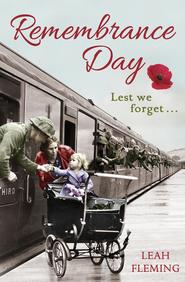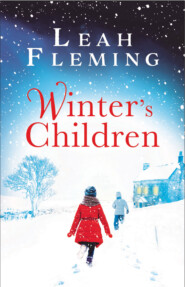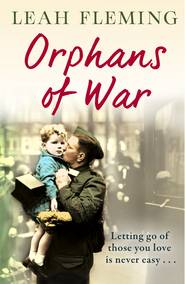По всем вопросам обращайтесь на: info@litportal.ru
(©) 2003-2025.
✖
The Girl From World’s End
Автор
Год написания книги
2018
Настройки чтения
Размер шрифта
Высота строк
Поля
Why had her gran and granddad never visited her before? There was a big bust-up, Mirren knew, a falling-out over her dad, long before she was born. She knew nothing about farms except that they were smelly places full of cow muck and horse dung. They once went on a Sunday school trip to one up on Howarth Moor, which was a right wild place where some lady had written a story called Withering Hats.
She smiled now, looking at Mrs Yewell’s hat. It was withering at the edges, all floppy with feathers that looked faded and frayed. It must be windy at Windebank. How would she live up in the wilds? She stared out of the window, trying not to snivel as her eyes filled with tears.
There was nothing but green fields and stone walls flashing past the window, walls running in all directions, making strange patterns over the hills: squares, oblongs, triangles and curves, and in the middle were dotted sheep like balls of cotton wool.
‘Are we nearly there?’ she asked. ‘When do we see the farm?’
‘All in good time,’ whispered the woman. ‘Be patient. Everything comes to them as waits…’
Mirren sighed and turned back to the window. She had never seen so many walls and sheep, men on carts and not a mill chimney in sight. This was a funny place to live, all strung out on your own. Where were the streets and the crowds?
Adey couldn’t take her eyes off the child opposite. She was the spitten of her mother at that age: the same long sandy plaits and those blue Yewell eyes. If she’d walked past her in the street, it would’ve been like seeing a ghost. How could she have gotten her age so wrong? Miriam must have been born at the war’s end. The son died as a baby. They ought to have visited but farms couldn’t run on their own and bridges had been burned when Ellie ran away.
The truth was she couldn’t bear to see her daughter living in the rough, running after a navvy into goodness knows what conditions. No wonder she…but this lass would get her chances even if she did have Paddy’s wild blood inside her. There was a spark to her eyes and an edge to her tongue, and she was quick to defend herself like all the Yewells.
So they called her Mirren not Miriam, the Scotch way, the old Granny had whispered. The lass had a right to her name but the Yewells were proud of Miriam and doled it out to their firstborn daughters for generations. Ellie had done the same for her daughter and that was touching.
Adey had to admit she was warming to the bairn even if she could see a few battles ahead with stubbornness. Mirren was a town child and not easy to settle up the dale, not used to shutting gates and doing chores. They were used to shops and dens of iniquity round every corner, cinema houses showing bare flesh as if it were decent. The child’d need watching and fattening up; all legs and elbows and bony knees. The kiddy was sitting in a dark serge coat two sizes too small, with her skirt hem showing and her stockings in need of a good darn: more holey than godly. Heaven only knew what was underneath. Full of fleas no doubt, but a good scrub would sort that out.
‘Do you like the country?’ she asked, trying to interest the girl away from picking her nose.
‘If you’ve seen one sheep you’ve seen the lot,’ Mirren sighed.
‘Oh, but that’s where you’re wrong. Every one of them is different and some of them have names, just like children, no two alike. The shepherd like the Good Lord Himself, knows them all. There’ll be a lot for you to learn, but farming’s in your blood so you’ll soon catch on. Your grandfather will walk you round the fields and introduce you to his flock so they’ll come to you,’ she added, hoping he would take to the child as she had done.
Joe would be shocked when he saw this mite standing, the image of their lost daughter. Why had they kept away so long? This child had been allowed to run wild into all sorts of danger just because they were too proud to bend a little. Now they must make up for lost time.
The man who came in the cart to collect them was like a giant with a sandy moustache and tufts of sandy hair coming out of his nose. He stared at her.
‘So this is our Ellie’s bairn, skinny as a lath but bonny with it? We’ll do summat with this one, Mother,’ he laughed, eyeing Mirren up like a prize calf.
‘No guessing she’s one of ours, Joe, is there?’ said his wife.
‘Oh, aye, right enough, but not in front of the lassie…So what did you think, coming all this way on a steam train?’ he offered, thinking she’d never been on a train before.
‘I’ve been everywhere with my dad…Leeds, Bradford and to the sea once at Filey,’ she answered politely. ‘This one was a bit slow.’
‘I see we’ve got a right little wanderlust here but I bet you’ve never lived on top of the world before,’ he said with a wink. She stared back, not sure if he was teasing or not. He was so tall and broad, like a giant in fustian breeches and big leather boots. His jacket had patches at the elbows, and from his waistcoat hung a real gold chain.
‘Now don’t go upsetting the lass. It’ll all be strange to her at first,’ said the woman.
‘All aboard then, and let’s be getting back, young lady.’
They seemed to be climbing uphill for ever, past grey stone village houses, past a small church with a stubby tower, past a duck pond, up walled tracks, higher and higher to the top of the hill where jagged white rocks jutted out and sheep scuttled past on bare grey hillsides. Down in the valley Mirren could see more stone walls and fields of sheep grazing, greens and greys and blue sky. A damp wind mopped her cheeks and she felt dizzy at the sight of such strangeness. It was another world with no people, no buses, no lines of houses lining the road, no smoking chimneys.
Then they turned off the track to the left towards a large white house with windows shining, sparkling like eyes. It was a house grander than she had ever seen before and this was Cragside, her new home. This was where Mam had lived as a girl. How could she have ever left such a dwelling for a railway hut?
Perhaps it was the marble pillars in the hall, the clack of her clogs on the tiled floor, or the high ceilings with piped icing corners, the large square rooms off the hall or the fact that the back of the house seemed to be tunnelled into the rock, but Mirren thought that Cragside wore a frown, not a smile, on that first viewing. It was like walking into the town hall or the Wesleyan Chapel and asking for the lavvy. She was dying for a pee but too shy to ask.
A kind girl in a white apron, called Carrie, showed her into the parlour, which smelled of lavender polish and woodsmoke, and she crossed over to the long window, staring out at the view. You could see for miles and miles, right down to the river and the railway line.
‘The sheep have all got coloured bottoms,’ was all she could think of to say. ‘Why?’
Nobody answered, but Carrie smiled. What had she said wrong?
This might look like a palace but at that moment her grandmother looked stern and forbidding, and Granddad looked awkward.
‘Go with Carrie into the kitchen and she’ll find you some tea,’ her grandmother ordered as she flopped down on the big armchair, pulling off her withering hat with relief. ‘It’s been a long day.’
‘I need the lav,’ she whispered to the maid.
‘The what?’
‘The lavvy. I’m bursting…’
‘Oh, the nessy…outside in the yard, or you can go to the water closet upstairs but it’ll be a bit high for you to pull the chain,’ said Carrie.
Mirren didn’t wait for an answer and shot out into the cobbled yard to look for the toilet.
From what she had seen so far, this was one of those fussy houses with ornaments to knock over and photographs to admire. There was a shawl over the big piano that might come hurtling down if she caught it and then she’d smash all the glass. She must remember to walk slowly and not make a noise on the flag floors. The kitchen smelled like a bakery and she felt hungry for the first time in days.
If only this was just a holiday it would be wonderful. If only Mam and Dad and Grant were here visiting together, playing in the fields and then going back home on the train, back to Scarperton and her friends…But this was for ever and ever, amen, and they were her family now, strangers who called her by the wrong name, who lived in a cold house and spoke different.
Mirren sat on the lavvy seat and howled. She was Jill all alone and it was all Dad’s fault, but she couldn’t be cross with him because he was gone. They were all together now without her in heaven. It wasn’t fair!
3 (#uf56aa83c-0324-5126-8355-cc99741ea590)
In the days that followed Mirren’s arrival at Cragside Farm there were a whole new set of chores to be learned. Carrie took her in hand to feed the chickens, to rummage for precious eggs and clean out the huts carefully, and look for holes in the fence where Brer Fox could get in. Mirren wrinkled up her nose at the smell of chicken dung but knew the score.
Uncle Tom, her mother’s big brother, showed her how to sweep up properly and take water to the cattle in the winter barn. The yard boy helped her scoop oats for the big Clydesdale horses. There was so much to learn and being busy made her forget about starting the new school down at Windebank.
Sometimes in the evening they gathered round the piano and Granddad placed his fingers up and down the keys to find a chord and smiled, showing her a set of gleaming teeth that Carrie said Granny had given him as an early Christmas present. He played tunes without even looking at his fingers. ‘“Just a song at twilight, when the lights are low…”’ His voice was rich and deep, but Granny got upset.
‘Don’t sing that, Joe…George used to sing that in the chapel concert. He was your mother’s brother, Mirren, but he never came home from France. They never found him; so many lost boys. At least you’re a lass and won’t have to face that carry-on.’ She sniffed, pointing to the photo of a soldier in uniform in the black frame on the mantelpiece. ‘That’s yer uncle, God rest his soul. Thank goodness some were spared, but there’s one or two round here who’re not the men they once were; the schoolmaster for one. I’ve heard that Annie Burrows has a lot to put up with these days.’ She lifted her hand as if she was swallowing something from a bottle. Then she saw Mirren watching and put it down quickly. ‘I’m glad to see you’ve signed the temperance pledge. Joe’s a Methodist so we don’t drink.’
‘Was my mam a good singer?’ Mirren asked.
‘She could render a good Messiah chorus when pushed but no solo work. George was our baritone. He’s sorely missed. They don’t do concert parties down Windebank any more. There aren’t enough men to go around now,’ she sighed.
‘Can I learn the piano?’ Mirren asked, hoping to be able to accompany herself singing like Granddad.
‘We’ll see when you’ve done your chores. Chores first and foremost, lass. The farm must come first, then making meals, sewing and mending, church, of course, and if you’re quick about them all, happen you’ll pare off a slice of time for a bit of music but only after you’ve done your homework.’
So that was how Mirren got her piano lessons, driving them mad, thumping out the wrong notes with hammer fingers until she got the knack of placing them correctly, which wasn’t easy. She soon got bored with scales, preferring to read all the books left on the shelf: Boy’s Own adventures that were full of derring-do and excitement. Getting lost in a book was one way to shut out the noisy comings and goings of the farm and the strangeness of her life high on the hills, but most of all the dreariness of Windebank school.
The school in Scarperton was large. There were hundreds of children, from infants to part-timers at the mill. They drilled like soldiers in a barracks, lining up with masters and mistresses to the sound of the bell, the whistle and the booming voice of the headmaster, who eyed up his pupils with interest and shoved Mirren into the class above because she could read well and help others. There were marching songs and country dancing, singing hymns and object lessons about nature and stars.
The school at Windebank couldn’t have been more different. There was one master, Mr Burrows, and his assistant, Miss Halstead. It was a mean matchbox of a building with windows high up on the wall. A big coke stove at one end belched out fumes. It had railings round that smelled of dirty socks and wet wool, and wet knickers now and then. Everyone was mixed up together on benches; the quiet and serious ones with rough boys in holey jumpers and thick boots that stung when they tripped you up.










